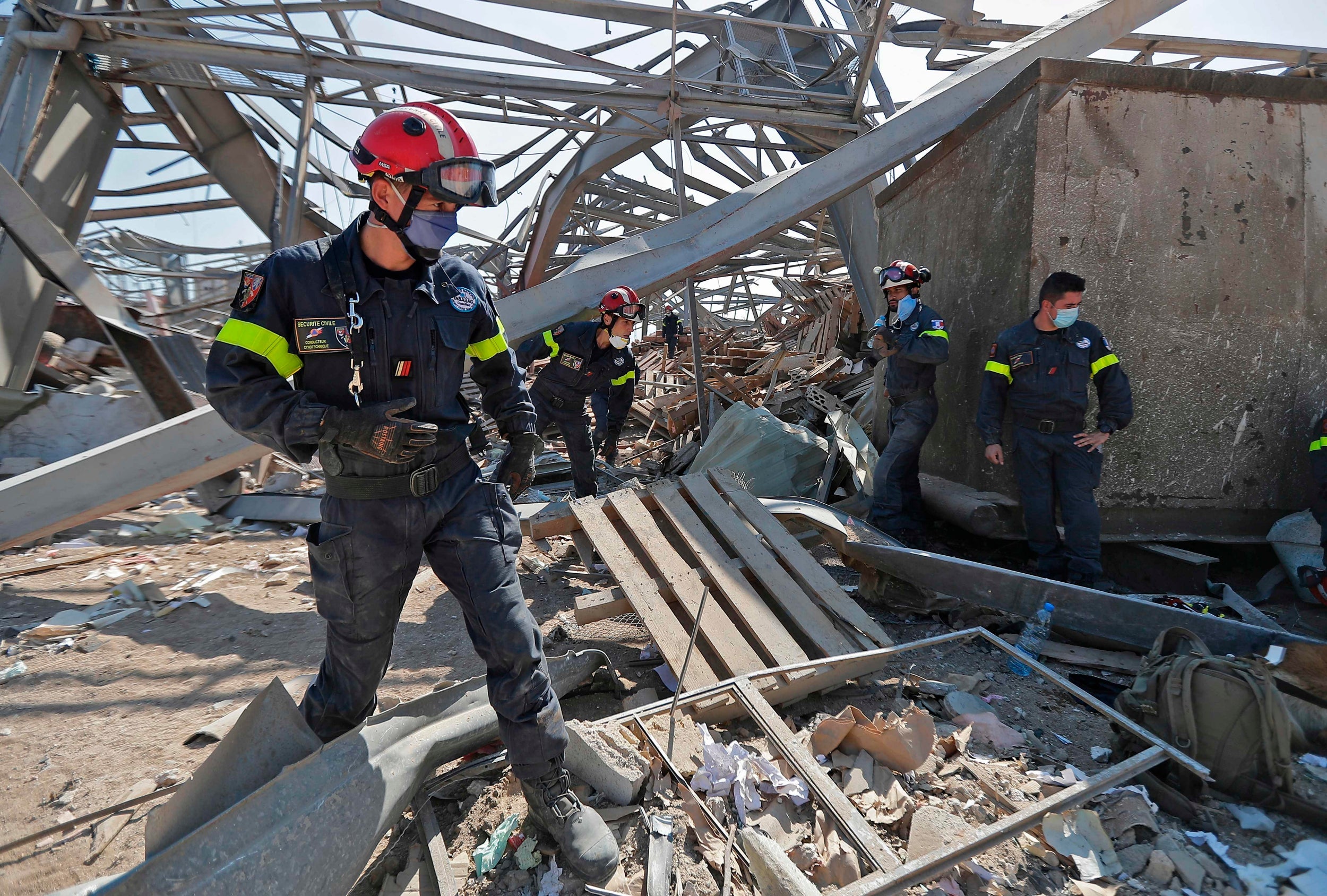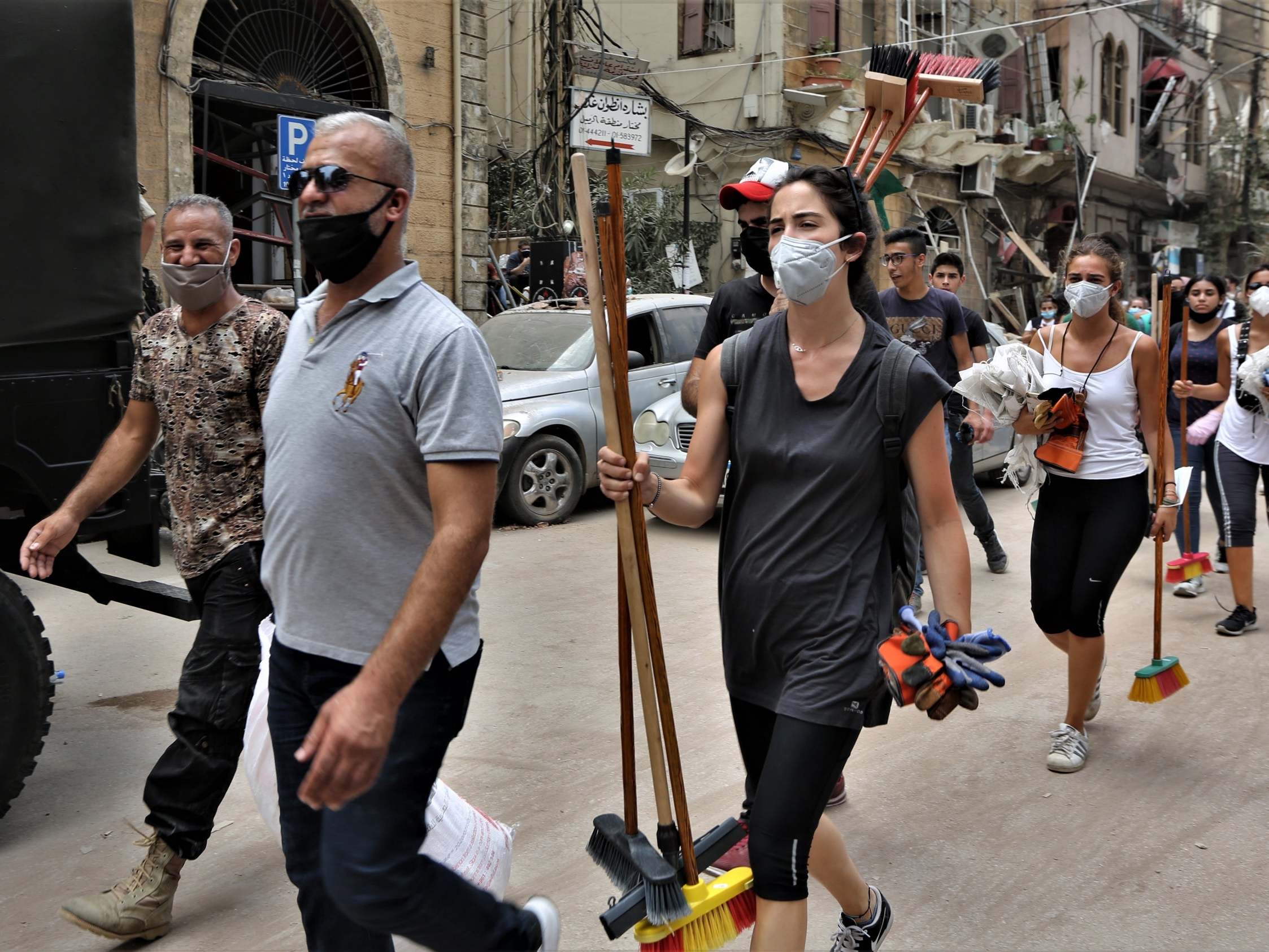Your support helps us to tell the story
From reproductive rights to climate change to Big Tech, The Independent is on the ground when the story is developing. Whether it's investigating the financials of Elon Musk's pro-Trump PAC or producing our latest documentary, 'The A Word', which shines a light on the American women fighting for reproductive rights, we know how important it is to parse out the facts from the messaging.
At such a critical moment in US history, we need reporters on the ground. Your donation allows us to keep sending journalists to speak to both sides of the story.
The Independent is trusted by Americans across the entire political spectrum. And unlike many other quality news outlets, we choose not to lock Americans out of our reporting and analysis with paywalls. We believe quality journalism should be available to everyone, paid for by those who can afford it.
Your support makes all the difference.Lebanon’s president has admitted he knew about a massive stockpile of explosive material stored at Beirut’s port nearly three weeks before it blew up, causing one of the largest non-nuclear explosions in modern history.
Michel Aoun has however denied he was responsible for the devastating blast, saying on Friday he had no authority over the port and had ordered that action be taken.
His comments mark the most senior confirmation yet that Lebanon’s rulers and security officials were aware that 2,750 tonnes of highly explosive ammonium nitrate had been stored improperly at the port.
The chemicals exploded on Tuesday after apparently being set off by a fire – killing 150 people, wounding more than 5,000, and causing billions of pounds of damage across the city.
“Do you know how many problems have been accumulating?” Mr Aoun replied when a reporter pressed whether he should have followed up on his order.
He added that the previous government had known about the dangerous stockpile since it was confiscated from an impounded Russian-leased ship in 2013.
Mr Aoun has been in his role since 2016.
“The material had been there for seven years, since 2013. It has been there, and they said it is dangerous and I am not responsible. I don’t know where it was placed. I don’t even know the level of danger,” Mr Aoun told a news conference. He said that when he was told of the stockpile on 20 July he immediately ordered military and security officials “to do what is needed”.
“There are ranks that should know their duties, and they were all informed ... When you refer a document and say, ‘do what is needed’, isn’t that an order?”
Anger against the government has mounted in Beirut, with citizens from across the country descending on the capital to help with the clean-up and rescue efforts in an apparent absence of state-led efforts.
Speaking to The Independent, people who have missing loved ones or were made homeless by the blast blamed chronic corruption and mismanagement within the ruling elite for the devastation, adding that authorities had done nothing to help them.
A government-led investigation is underway, however rights groups and citizens have called for an independent international probe over concerns it will fail to hold those responsible to account.
Mr Aoun dismissed the idea and claimed the local probe was sufficient.

He also appeared to question the initial analysis that the explosion was caused by negligence, saying that Lebanon’s own investigation would also look at the possibility that it could have been caused by a bomb or other “external intervention”.
The president added that he had asked France for satellite imagery from the time of the blast to see if they showed any planes or missiles.
So far, 16 port employees have been detained and others questioned, with the central bank freezing their accounts.
Official letters circulating online showed the head of the customs department had repeatedly over the years that the ammonium nitrate in the port was a danger and had asked judicial officials for a ruling on how to remove it.
What sparked the explosion not yet known. Former port officials told The Guardian newspaper they believed that fireworks had been placed inside warehouse 12, where the ammonium nitrate was stored, despite the obvious dangers.
The same former port worker said that welding work was being carried out in the vicinity of the warehouse that may have started the initial fire.
Meanwhile Hezbollah’s leader Hassan Nasrallah on Friday denied that the Lebanese militant group was involved in any way or excised any control on the port, saying – seemingly in jest – that the group knew Haifa port in Israel better than Beirut Port.
He did not rule out a missile attack or an act of sabotage being behind the explosion but said that storing explosive materials like ammonium nitrate at the port for so long means “it is partially an issue of negligence, corruption, nepotism” that should not be ignored.
There are concerns that the explosion could lead to a surge in coronavirus cases as at least four hospitals, including one hosting a Covid-19 testing facility, have been destroyed.

The World Health Organisation said it was scrambling to deploy $1.7m worth of personal protective equipment to Beirut after 17 containers filled with supplies for coronavirus response were destroyed at the port.
Dr Rick Brennan, emergencies director for the eastern Mediterranean, said the “massive extra burden of injured people” could cause the health system to be “overstretched” by the emergency and coronavirus responses.
This came as the Ministry of Health registered a daily record of 279 new Covid-19 cases.
World leaders have cautiously stepped up to assist embattled Lebanon, although many have expressed concerns about corruption.
European Council president Charles Michel is due to head to blast-ravaged Beirut for weekend talks with Lebanon’s leaders as the EU weighs up its contribution to a donor conference in coming days.
He will also take part in a French-organised donor conference, along with the EU’s crisis management commissioner. Brussels has said that the virtual meeting would take place on Sunday, but France has yet to confirm a date. Pope Francis, meanwhile, sent a €250,000 donation to the Church of Lebanon to help in the aftermath of the explosion.

Join our commenting forum
Join thought-provoking conversations, follow other Independent readers and see their replies
Comments